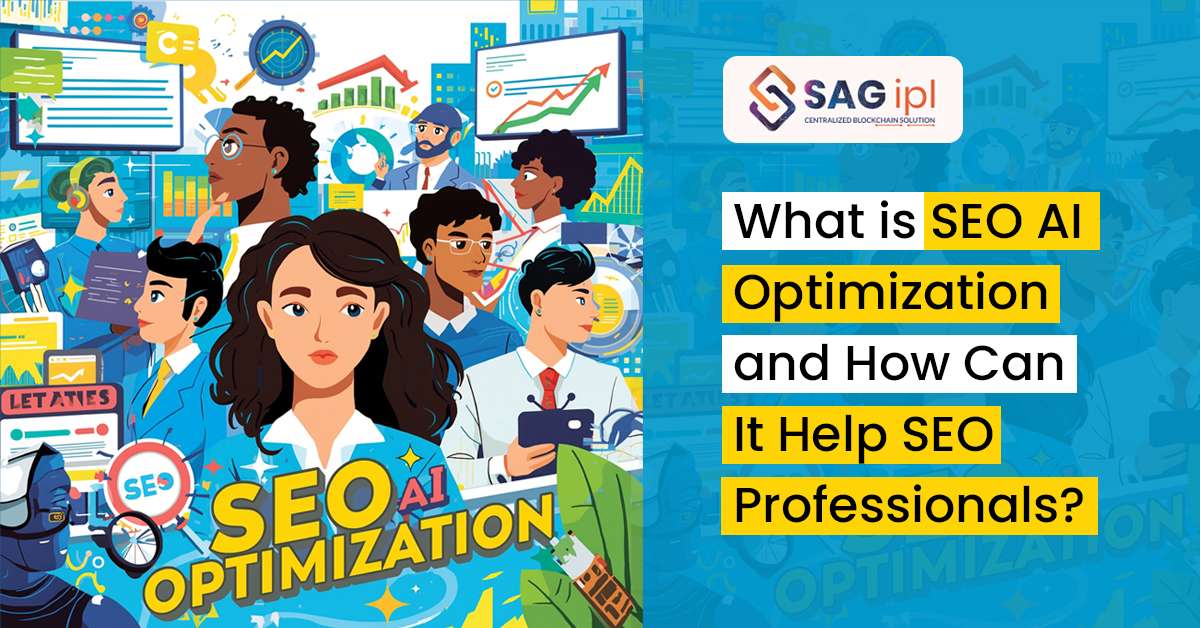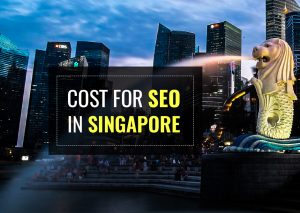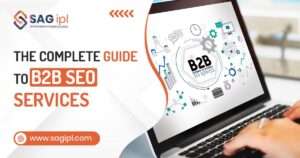For many years, SEO was one of the best ways for businesses and marketers to achieve online growth and visibility. But things are changing now. Traditional SEO is becoming obsolete, thanks to AI algorithms having changed everything about how search engines work and show results. AI SEO optimization is the newest trend in the digital marketing space.
In this article, we discuss SEO AI Optimization and how professionals can leverage it to make a website or business stand out in search results.
What is SEO AI Optimization?
SEO AI optimization is simply the use of Artificial Intelligence to improve SEO to fit the evolving search landscape.
AI has completely changed how search engines work today. From Google AI Overviews to ChatGPT AI Search, people are increasingly using answer engines to get direct answers to their queries.
AI tools are far more capable, efficient and smarter than traditional search engines. They can better understand search intent, research online, and deliver the best answer to a question, saving the need for users to go through 10s of links or websites to find what they’re looking for.
In short, AI has reduced the long list of potential results to one, accurate, and definite answer.
This has changed how people perceive or do SEO.
With a large number of people now favoring AI tools over traditional search engines to find information, SEO professionals must adjust their approach to align with the changing market dynamics. And what’s a better means than AI to achieve this?
SEO AI optimization involves using AI tools like machine learning and data analysis to improve SEO and appear more frequently in search results, especially on AI-based platforms.
Why does SEO AI Optimization matter?
AI has changed the way search engines work. Unlike traditional search, AI tools don’t (primarily) use keywords—they instead try to understand the intent behind search and provide the most relevant answer possible.
This means SEO strategies designed around broad match keywords may no longer be effective in the AI-driven search era. Optimizing for specific user queries and user intent is the new normal.
With AI tools dominating the search space, optimizing your content and website for them is non-negotiable.
Benefits of SEO AI Optimization (SEO using AI Tools)
- Help you understand and optimize for user intent
- Automate repetitive tasks such as keyword research and rank tracking
- Rapid data analysis and advanced predictive insights into AI SEO trends and algorithms
- Improved content optimization using NLP (natural language processing)
- Competitive intelligence—studying competitors and industry trends to improve SEO strategies
- Improved user experience through personalized content
AI tools enable the development of faster, more personalized SEO strategies, providing a substantial edge over competitors and ensuring better alignment with user intent and modern, AI-powered search landscapes.
By analyzing and processing large data sets extremely quickly, AI SEO tools provide crucial information and insights to help marketers and Search Engine Optimization specialists. For example, AI can help you discover the latest market trends and develop successful strategies that boost your campaign’s performance.
How to use SEO AI Optimization for your business or campaign
Whether you’re a business owner or a digital marketer, SEO optimization using AI tools can help you appear more frequently in AI search results and answers for relevant queries.
“If you aren’t using Artificial Intelligence for SEO in 2026, you might be missing out on some really powerful optimization opportunities.”
Here’s how to use AI to optimize your SEO strategy, from keyword research to user experience and everything in between.
1. AI for Keyword Research
Gone are the days when SEO was all about selecting and optimizing for high-volume keywords. You’d choose the most popular search terms, build great, optimized content around them, and generally achieve higher rankings. While keyword optimization still works, the process has changed slightly.
With AI search platforms favoring user intent over generic keywords, the way we research keywords has changed. AI keyword research tools look deeper, focusing on intent. Instead of broad, general terms, it chooses more specific, exact phrases or queries that users might type in a search.
While intent-based keywords may have lower search volume, they have a higher conversion rate. Why? Because people get more relevant, exact answers to their questions, prompting them to act
2. Link Building
Backlinks will continue to matter in the AI-driven search era. Google, including AI Overviews, still uses backlinks to judge a site’s credibility. However, AI has changed how search engines evaluate and use backlinks. Modern search engines now use AI to assess the quality and authenticity of your site’s backlinks.
This has simply reiterated what Google has been saying for years: focus more on quality than quantity.
Spam practices such as link farming or buying links no longer work in the AI era. AI can detect the origin of your backlinks and check authenticity.
AI SEO can help you earn genuine links rather than having to buy them. These tools can find realistic backlink opportunities for you. They can analyze your competitors’ backlink profiles and replicate high-quality backlinks. They suggest the types of content, such as long-form articles with useful data, that can fetch you good backlinks from reputable platforms.
Moreover, AI can evaluate your existing backlink profile to find and remove links that no longer benefit in the modern search landscape and might even be hurting your campaign.
AI SEO optimization is all about boosting your organic growth with the help of the right partners.
3. Content Creation
One of the most common areas where marketers can use AI is content creation. Many businesses and SEO professionals are already using tools like ChatGPT, Jasper, and Google AI Mode to brainstorm ideas for high-quality, intent-focused content, create strategic outlines, and edit or optimize existing content to meet the new norms.
Whether you’re writing data-backed articles, social media captions, memes, blog posts, product copies, or creating engaging videos, just ask AI for ideas and help.
But there’s a catch. Using AI for content research is one thing, but getting it to write complete articles can make your content lack originality and authority, which can hurt your search engine rankings.
Also, providing clear, specific instructions is the key to getting the best answer from AI platforms. Include your keywords. Define your brand values and audience. Be precise about your goals and the structure you want.
Never use AI-generated content as it is. It may sound robotic or contain unoriginal or outdated information. Always proofread or edit AI content and cross-check facts. Make sure the sources are real and credible. Most importantly, rewrite it to provide a human touch. AI doesn’t have the same instincts or intellect as humans do.
To sum up, use AI to save time and find some good ideas for writing great, intent-focused content.
4. On-Page Optimization
Technical SEO and website optimization are just as important today as ever before.
Beyond delivering a great browsing experience for your site users, it helps search engine bots and AI tools seamlessly crawl and index your site and find the required information.
While AI SEO may not excessively focus on every technical issue, crucial factors such as site speed and mobile responsiveness still matter a lot. From posting informative content to optimizing for relevant keywords and AI-friendly phrases and using clear navigation, on-page SEO can help boost your AI search visibility and credibility.
AI tools can provide useful recommendations for optimizing your website to improve search visibility and rankings. They can detect issues such as lagging page speed, poor mobile performance, or bad user experience and suggest changes.
Marketers can also use AI to uncover outdated posts on the website and update them with the latest trends to boost rankings. There are AI tools that can fully audit your site for design, structure, and readability across devices and provide recommendations to boost user experience.
Making your site easy to read and posting useful, intent-focused content is key to success in AI search.
5. Voice Search
Voice search is dominating the market. Over 20% of the world population uses voice search, according to a 2025 report.
People speak differently from how they type. Over 80% of voice searches are full questions, not just keywords.
For example, someone looking to buy accounting software might say, “What’s the best accounts software that handles taxation and investments?” That’s a lot more specific than just typing “accounting software” in Google.
So what can you do to increase your site or content’s rank in voice search?
The answer is simple: optimize for long-tail, conversational phrases and exact queries that people might ask in voice search.
Use AI tools to analyze your online presence and update your listings, including your Google Business Profile, with correct, up-to-date information. Voice searches often show local results first.
Use schema markup to make it easier for search engines and AI to understand and rank your content.
Voice is growing fast. Write like your users talk.
6. User Experience
User experience (UX) continues to be an important component in a successful AI SEO optimization strategy. AI prioritizes user experience when selecting its answer.
AI-powered SEO tools can track user behavior on your site, offering useful insights and recommendations for improving the experience. AI detects errors and tells you how to fix them.
You can start by asking your AI website tool to create your ideal buyer personas. Based on this, you can create content for your target customer, including blogs, videos, social posts, and more.
Beyond content, AI optimization can also help improve your site’s speed and mobile design, two very important factors affecting user experience. If your site is slow or complex to use, people will leave, leading to a drop in rankings.
7. Predictive Analytics & Automation
With predictive analytics, AI can anticipate successful strategies based on past behavior and user experience. If someone reads multiple articles on GST software, AI can schedule a strategy call to help them with the next step.
Moreover, AI automation can reduce your burden and save time by handling repetitive SEO tasks on pilot. These include tracking backlinks, checking ranks, running audits, and building reports. This can help you save days of manual work.
AI tools like Looker Studio can create interactive reports automatically based on available data. Once you connect it to your Google Analytics or Ahrefs account, it can fetch real-time data to prepare performance reports for clients. There are several AI tools offering numerous automation opportunities for SEO professionals.
8. Featured Snippets
Remember featured snippets? No, they’re not gone. They still matter in the AI-driven search era. While most Google queries get instant answers through AI Overviews, featured snippets are just as important when the AI answer is not sufficient or available.
What’s important is that feature snippets, combined with AI results, have significantly reduced click-through rates (CTR) for websites that appear in organic results.
According to a report, featured snippets have dropped the CTR of a #1 ranking website by up to 4 times on average.
The good news? If your content manages to get in the snippet or AI Overviews, CTR can increase dramatically. Some websites experience more traffic and leads than ever before.
To get featured in snippets or AI results, write your content in the form of detailed, exact answers. Use headers, bullet points, and answer frequently asked questions directly. Make it easy for AI to read and reference your content as a response to a user query.
Conclusion
AI SEO optimization is the newest form of SEO, where AI tools help you appear more frequently in AI search results or Overviews by optimizing and structuring your content for AI-based responses.
As AI changes how we research, create, and optimize, AI SEO is all about adapting the best practices that work in the AI-dominated search landscape. The businesses that adapt early will experience more wins, appear more frequently in results, and earn more leads.
If you’re looking to optimize your website or content for AI search results, SAG IPL AI SEO optimization company can help. Contact us today!







